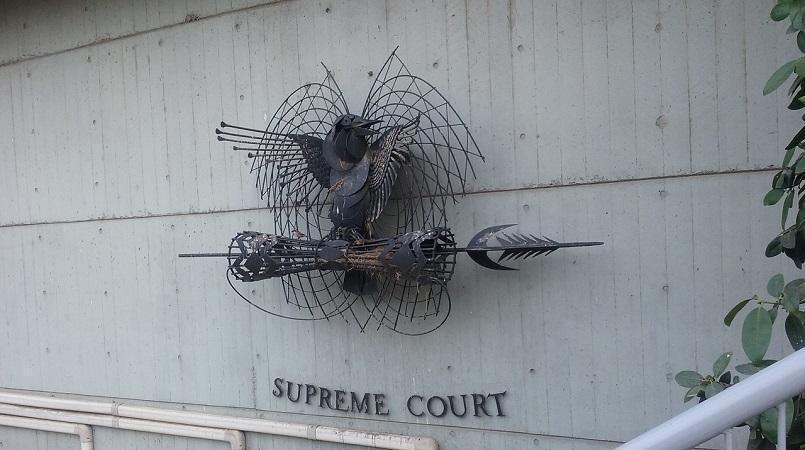
Developers and the state alike are failing to either deliberately ascertain or confirm customary landowners before proceeding with their activities on customary owned land.
What is happening in most cases is that, rather than taking this important crucial step, they choose to deal with persons who claim to be landowners when in fact, they may not be the true and correct landowners.
This was highlighted by a three-man Supreme Court bench recently when handing down a ruling on an appeal involving customary land owners of Abau in the Central Province and a logging company.
The full court dismissed an appeal, filed by logging giant Rimbunan Hijau (PNG) Limited, against a National Court decision which ordered them to pay over K6 million in damage to the Moga clan of Loupom island, in Abau district.
The National Court found that RH trespassed and illegally used an access road for its logging operations, on customary land, from the years 1988 to 1996, for storing and loading of logs for its operation onto ships for export overseas.
The court found that ownership of the land was not clear in 1988, when RH moved into the land.
Warata clan made representations to RH that it was the owner of the land. Based on that, RH entered into an MOU with Warata.
The claim against RH in the National Court was filed by Ebi Enei, who made the claim for himself and his Moga clan, as the leader of the clan.
Following his passing, his administrator Ina Enai was substituted as a party and continued to pursue the claim in the National Court.
A land dispute over the ownership existed between the two clans.
The dispute was taken to the Provincial Land Court and on 12 November 1997, the court ordered royalties or rent for the use of the land to be paid to Ibi Enei.
“RH had the duty to carry out its due diligence, and establish the true and correct owners and deal only with them. If it did that, it would have ascertained that Moga owned the land,” the Supreme Court ruled.
RH produced no evidence to show they carried out search to establish the identity of the true and correct owners of the land.
“What happened here is a sad story that is repeated throughout the country, over a long period of time from the colonial administration, in the name of opening up wild frontiers, for various so-called development and projects.
“The so-called project and development covers from logging, prospecting for minerals and oil and gas to actual mining, to oil and gas developments to other customary land base development like the famous or infamous Special Agriculture Business development Leases (SABL),” the Supreme Court bench made up of Deputy Chief Justice Sir Gibbs Salika, Justice Ambeng Kandakasi and Justice Peter Toliken ruled.
